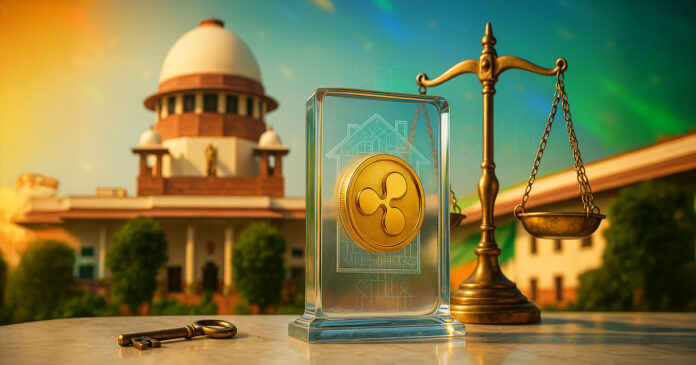Landmark Ruling in India Treats XRP as Property, Not Speculation
A recent ruling by the Madras High Court in India has set a significant precedent for the treatment of cryptocurrencies, including XRP, as property under Indian law. This decision has far-reaching implications for how exchanges handle user assets during bankruptcy proceedings, not only in India but also in other jurisdictions. The court’s judgment, delivered by Justice N. Anand Venkatesh, determined that cryptocurrency is considered a virtual digital asset and not a speculative transaction, citing Section 2(47A) of the Income Tax Act.
The case involved WazirX, a cryptocurrency exchange, and a customer who had acquired 3,532.30 XRP coins. The court issued an interim injunction, preventing WazirX from reallocating or redistributing the customer’s XRP holdings, despite the exchange’s argument that a restructuring plan overseen by Singapore’s Supreme Court was controlling the matter. The court’s decision establishes that cryptocurrencies can be enjoyed, owned, and held in trust in a beneficial manner, treating crypto holdings as independent property rights rather than unsecured claims in an insolvency pool.
XRP’s Ownership Status Shapes Remedial Action Elsewhere
Courts in the US have also treated crypto as property for remedial purposes, although the regulatory classification varies by authority. For instance, the New York State Court has issued injunctions for stolen USDC, and federal courts have frozen wallets and seized cryptocurrencies under Rule 65 and civil forfeiture laws. The ease of exchange depends on the contract structure, with customers who hold assets in omnibus or “earn” programs receiving less in return than those with proper custody arrangements.
In the United Kingdom, courts recognize crypto as property and issue ownership orders, freeze orders, and Bankers Trust disclosure orders against exchanges, including overseas. The English courts have established a framework for treating crypto as property, as seen in cases such as AA v. Persons Unknown and Fetch.ai v. Persons Unknown. Similarly, in Singapore, the Supreme Court has issued ownership and global freeze orders on stolen cryptocurrencies, recognizing NFTs and tokens as property and confirming that cryptocurrencies can be held in trust.
Comparing Jurisdictions
A comparison of different jurisdictions reveals that India, the US, the UK, and Singapore all recognize crypto as property to some extent. However, the specific treatment of crypto assets varies depending on the jurisdiction and the circumstances of each case. The following table summarizes the key differences:
| Output | India | United States | United Kingdom | Singapore |
|---|---|---|---|---|
| Is crypto “property”? | Yes; be explicitly stated and “trustworthy”. | Yes, for many purposes (taxes/property; courts issue TROs, seizures). | Yes; Courts treat crypto as property supporting property relief; Government moves to codification. | Yes; recognized across tokens and NFTs; can be held on trust. |
| Can courts prevent an exchange from touching user coins? | Yes; An injunction banned WazirX from reallocating customer XRP. | Yes, via TRO/injunction and constructive trust theories, but platform ToS can be outcome determining (Celsius Earn). | Yes; Property orders and disclosure orders regularly bind exchanges, including. abroad (AA; Fetch.ai; LMN). | Yes; Property and Mareva relief granted; Exchanges obliged to disclose. |
| Noticeable borders or folds | Court asserted jurisdiction despite Singapore regulation; assets framed as trust assets. | When ToS transfers ownership (yield/earn), users may be unsecured creditors in bankruptcy. | Some injunctions against exchanges have been issued on facts; The relief is case-specific. | Strong on ownership/trust, but final results still depend on facts and contract terms. |
The Madras High Court’s ruling brings India into line with jurisdictions where property rights take precedence over pooling schemes when exchanges face insolvency or restructuring. Establishing that crypto purchases create enforceable property rights, not just contractual rights, can limit how platforms redistribute user assets in times of financial distress and make clear that local courts will continue to have jurisdiction over assets accessed and funded domestically, regardless of where corporate restructuring proceedings take place. For more information, visit https://cryptoslate.com/landmark-ruling-in-india-treats-xrp-as-property-not-speculation/

